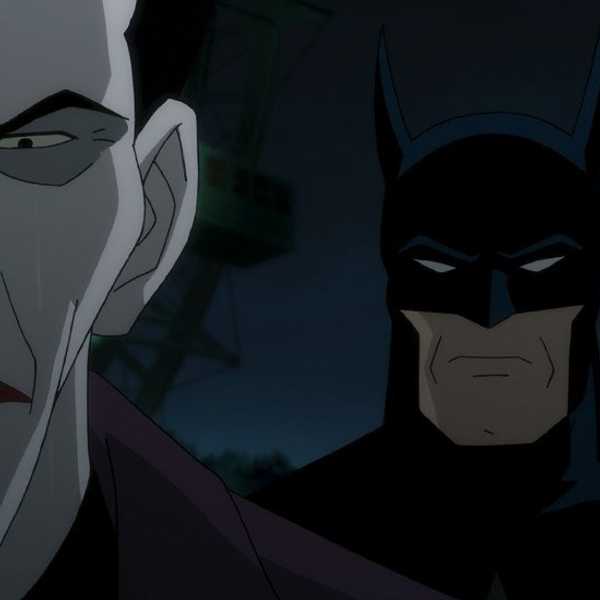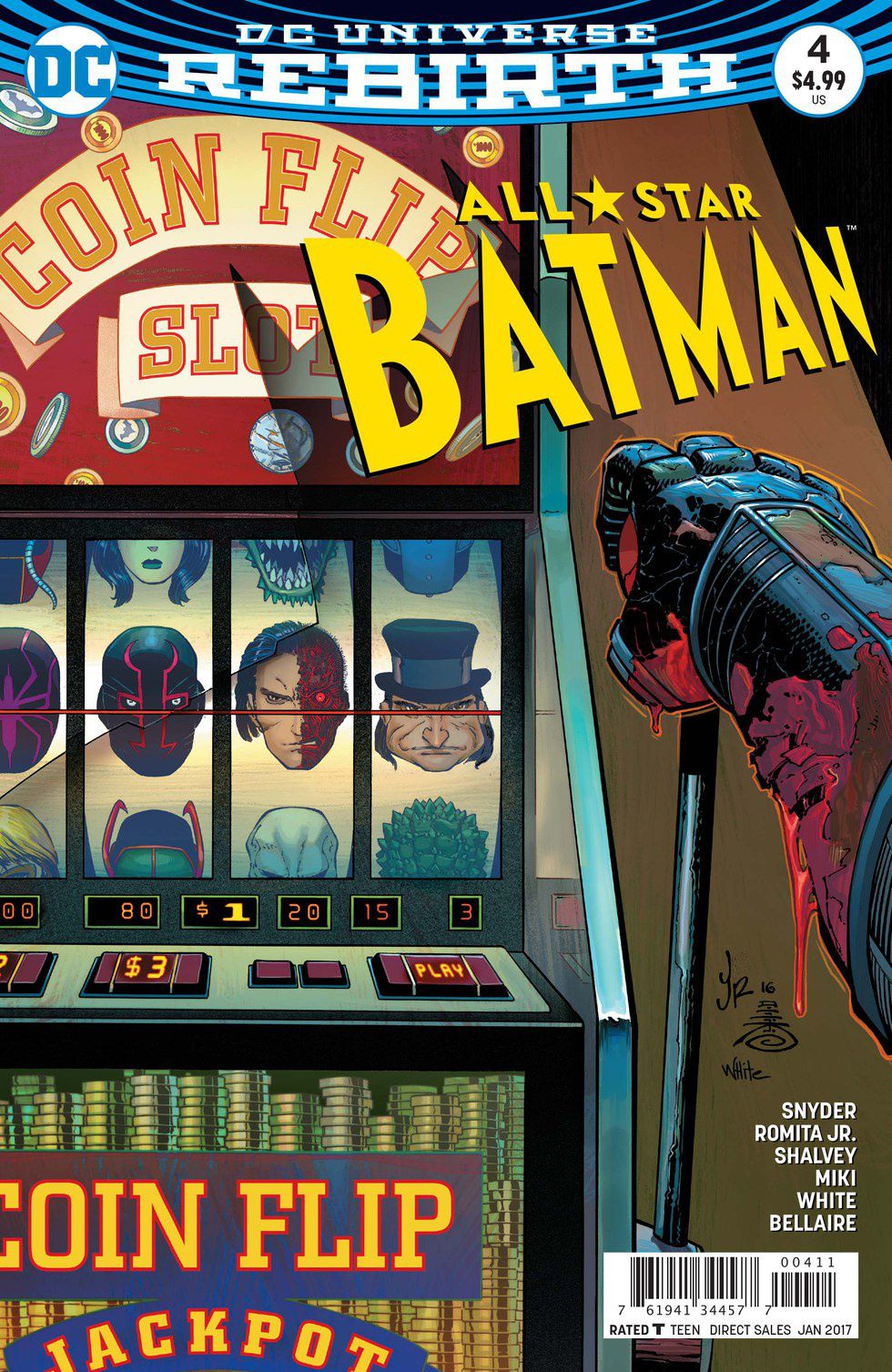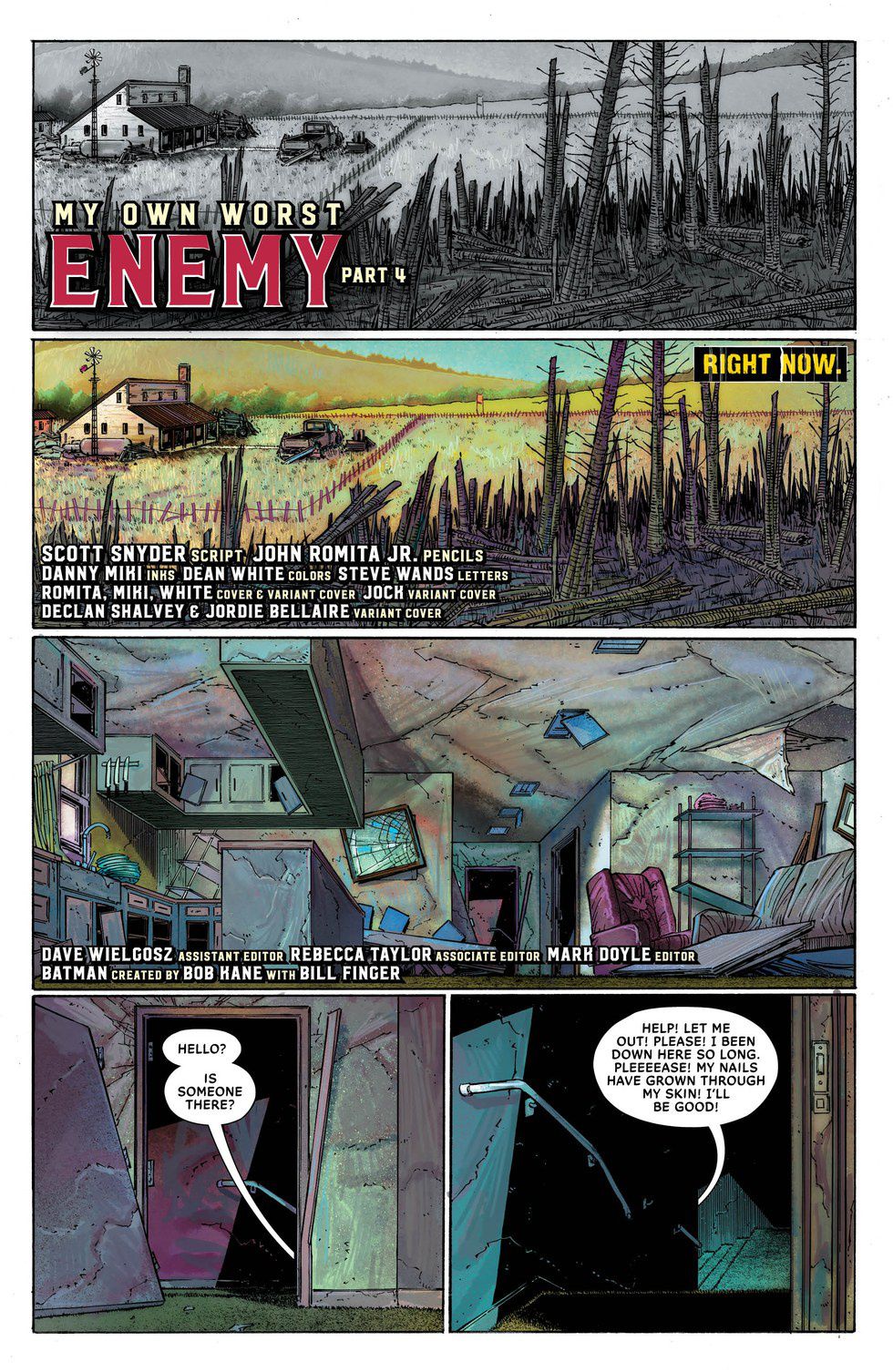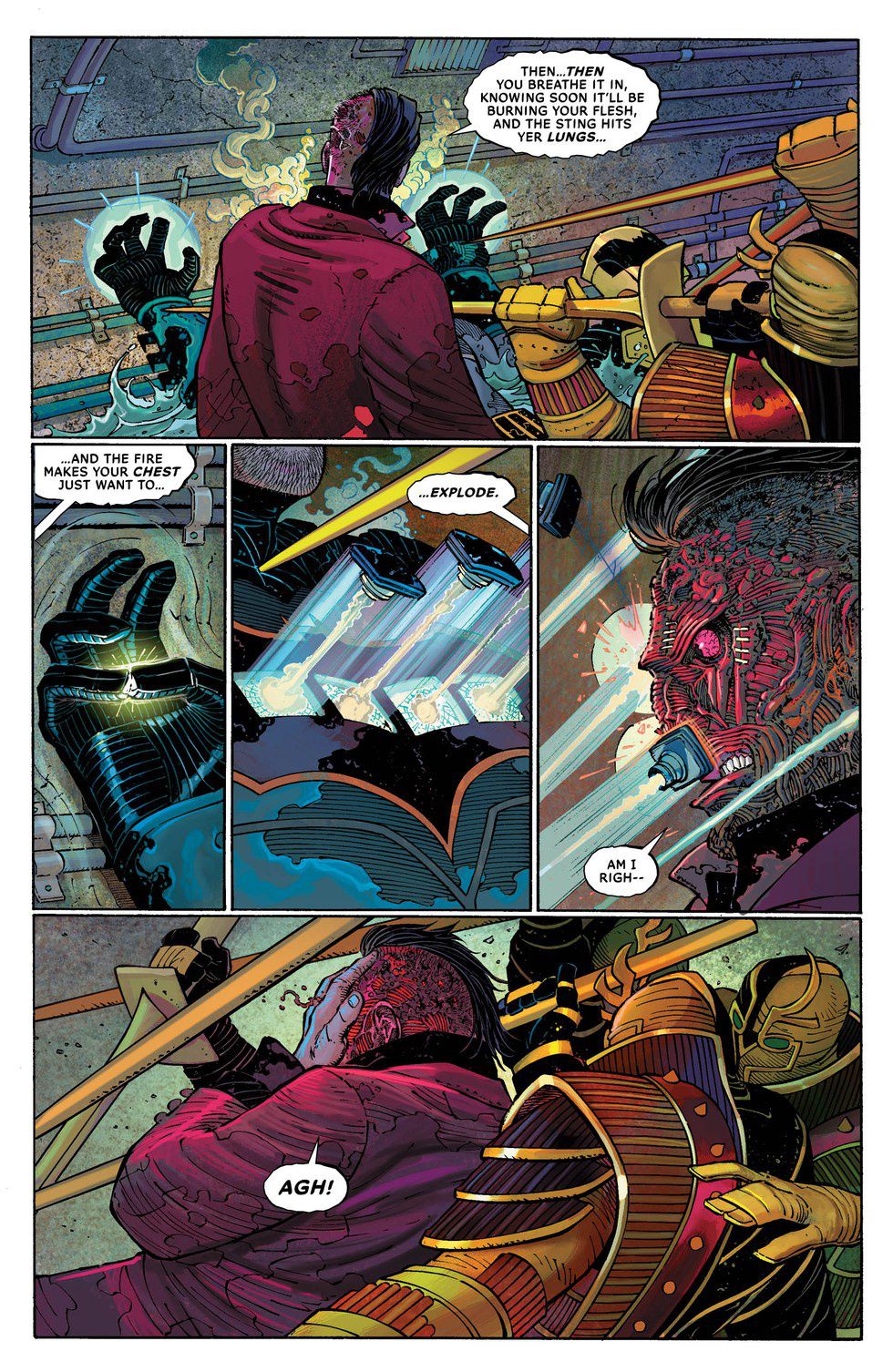During the "New 52" phase of the DCU, Scott Snyder wrote some of the best Batman stories in the character's history. So, when it was announced he'd be leaving the character before "Rebirth," it was upsetting. However, there was hope: he would return to the character a few months later for a brand new adventure in "All-Star Batman". Four issues in, one thing is clear: this version isn't quite as good as the original.
Now, that's not to say "All-Star Batman" doesn't have its charms. For one, it more than lives up to its title. Each issue is a veritable who's who of Batman's greatest villains and every page is packed with action. The core story is also a good one. Finding a cure for Two-Face's split personalities is a tantalizing possibility even if it's unlikely DC would let Snyder take such an iconic villain off the playing board. (Though he did successfully kill off the Joker a few years ago, so who knows?) Watching Batman push on despite resistance from friends, foes and ordinary citizens alike even after he's received intel that suggests it's a fool's errand in the first place gets to some fundamental truths about the character: that he doesn't give up and that he believes people are inherently good.
No, the problem is that the book feels like a bit of a throat-clearing for Snyder. He's not necessarily crafting the sort of complex arcs that made his "Batman" run so great, he's blowing things up and having a little fun. His exploration of the fundamental relationship between Two-Face and Batman is more plot device than the deep dive he did into the Joker/Batman relationship in the "Death of the Family" arc.
Speaking of the Clown Prince of Crime, Bruce's newest trainee, Duke Thomas, makes a passing reference to that relationship in what seems to be the final chapter of the back-up story about Victor Zsasz. While the exact moment seems a bit of a cheat considering the point Duke makes is something both we and Bruce should already know, the rest of the story is arguably the best thing about the issue. The Two-Face story is exciting, but dialogue is often so heavy-handed and the action is so relentlessness that it can be a little taxing. There's a strange comfort in this normal, if twisted, detective story that doubles as Duke's evolution into full superhero. That's thanks, at least in some part, to the art. Declan Shalvey's figures are a deal less stylized than John Romita Jr.'s in the main story and Jordie Bellaire's coloring is more subdued than Dean White's sub-Tarantino shades.
"All-Star Batman" is not your usual "Batman"—that's the whole point. Some will find the constant action and big ideas thrilling, but just as many will find it leans a little too often toward gratuitous violence and grandstanding. Scott Snyder has an incredible grasp of who Batman is and what he means–no question–this just isn't necessarily the most complex or enjoyable work he's ever done with the character. But hey, if this is the story he has to tell in order to make sure his secret Batman project for next year with former collaborator Greg Capullo is great, then he can throw in as many shootouts as he wants.























